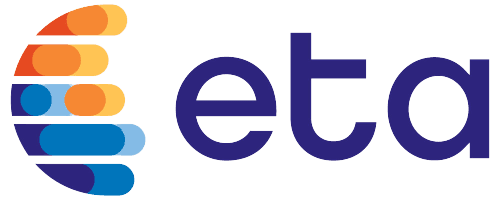Updated July 8, 2025
A high-risk bank account is also known as a high-risk merchant account. High-risk banks provide merchant accounts to high-risk industries. They have separate standards for approving your account and are more lenient when it comes to your industry or chargeback rates.
Here, we delve into the world of high-risk banks, shedding light on their defining characteristics, the factors that contribute to their classification, and the strategies they employ to navigate the complex terrain of the financial industry.
What are High-Risk Merchants?
High-risk merchants are businesses that financial institutions and payment processors consider high-risk. Often, entire industries are considered high-risk. There are many reasons an industry or merchant is considered high risk. Typically, these may include a high risk of fraud, chargebacks, or industry regulations.
Factors Contributing to the High-Risk Classification for Specific Industries
- High Chargeback Rate: Companies that see a high chargeback rate not only pay higher chargeback fees but they may also be considered high-risk because their financial partners often have to cover the shortfall.
- High Risk of Fraud: Companies that see a higher risk of fraud, such as the travel and gambling industries, typically need a high-risk merchant account. Banks are wary of being on the hook for fraudulent transactions.
- Recurring Transactions: Subscription service providers are considered high-risk because of the high chargeback rate. This means banks that work with them are also at high risk of having to cover chargebacks.
- Geographical Considerations: Companies with a high percentage of international sales may be considered high-risk because of the shifting economic situations in different areas of the world.
- High-Ticket Sales: Merchants that regularly sell high-ticket items typically must use high-risk merchant accounts to accept credit and debit cards. Again, they are considered a high-risk business because of the high chargeback rate that comes with large credit card payments.
Businesses in industries that regularly deal with these factors will typically be deemed high-risk merchants. However, these businesses can still thrive with high-risk merchant accounts and payment processing.
Unlike low-risk merchant accounts, these payment processors find financial institutions more comfortable with the risk of working with businesses in high-risk industries. They understand the difficulties and can help them navigate the regulations and issues high-risk merchants face.

Factors Contributing to the High-Risk Classification for Banks
The following factors determine why an industry is considered high-risk by merchant account providers.
1. Non-Traditional Clientele: High-risk banks often serve clients engaged in industries deemed risky by traditional banks, such as online gaming, adult entertainment, and cryptocurrency trading.
2. Geographical Considerations: Offshore banks, typically located in jurisdictions with favorable financial regulations, can attract clients seeking to minimize tax liabilities and enhance privacy.
3. Complex Transactions: High-risk banks handle intricate financial transactions that may involve multiple jurisdictions, making them susceptible to regulatory concerns and potential illicit activities.
4. Regulatory Scrutiny: Regulatory authorities closely monitor high-risk banks due to concerns related to money laundering, terrorism financing, and other financial crimes.
Which Industries Are Considered High-Risk?
Merchants in the following industries are usually deemed high-risk businesses. These merchants will need to obtain high-risk merchant accounts to process credit and debit cards and obtain payment gateways.
- Credit repair
- CBD/Vape
- Big-ticket items
- Adult products and entertainment
- Gambling
- Nutraceuticals
- Coaching
- Firearms
- Tech support
- Travel
- Subscription services
- Cryptocurrency
- Dating sites
- MLMs
Additionally, businesses that have a high chance of chargebacks, bad or minimal financial history, or poor credit scores may also be considered high-risk merchants.
What Are High-Risk Merchant Accounts?
High-risk merchant accounts (or bank accounts) refer to accounts offered by financial institutions that cater to businesses and individuals operating in industries considered riskier than conventional sectors. An account like this is typically referred to as a high-risk merchant account. High-risk industries may include online gambling, cryptocurrency trading, adult entertainment, and more. High-risk accounts often differ from traditional bank accounts in several ways:
- Types of High-Risk Businesses: High-risk bank accounts are designed for clients engaged in industries that face regulatory scrutiny or are associated with a higher potential for financial risk. Traditional bank accounts serve a broader range of industries.
- Due Diligence: Due to the potential regulatory concerns, high-risk banks might have less stringent due diligence procedures when compared to traditional banks. However, this varies by institution.
- High-Risk Services: High-risk bank accounts may offer specialized services that cater to the needs of their unique clientele, such as lower tax burdens, privacy measures, and international transaction capabilities.
- Underwriting and Approval: High-risk accounts are subject to increased regulatory oversight due to concerns related to money laundering, terrorism financing, and other financial crimes. Traditional bank accounts also undergo regulatory checks but may have different risk profiles.
- Correspondent Banking: High-risk banks often face challenges in establishing correspondent relationships with mainstream financial institutions due to perceived risks associated with their client base.
High-Risk Bank Options
High-risk banks often offer financial services that differ from those of traditional banks, such as more lenient due diligence procedures, lower tax burdens, and enhanced privacy measures.
Due to these unique features, high-risk banks are subject to increased regulatory scrutiny and often face challenges in establishing correspondent relationships with mainstream financial institutions.
High-Risk Business Considerations
1. Enhanced Compliance Measures: High-risk banks invest in robust anti-money laundering (AML) and know your customer (KYC) procedures to mitigate regulatory risks and ensure the legitimacy of their clients.
2. Embracing Technology: Leveraging technology like blockchain and AI, high-risk banks can enhance transaction security, transparency, and efficiency, thus building trust with clients and regulators.
3. Strategic Partnerships: Developing strong relationships with reputable correspondent banks and payment processors is crucial for high-risk banks to access global financial networks.
4. Transparency and Reporting: High-risk banks prioritize transparency in financial reporting to alleviate concerns around illicit activities and enhance trust among regulatory bodies.
5. Adapting to Regulatory Changes: As financial regulations evolve, high-risk banks must stay abreast of changes and proactively adjust their operations to comply with new requirements.
Why Zen Payments is the Best High-Risk Merchant Account Provider
The best high-risk merchant account provider is Zen Payments. That's because we have over 15 years of experience providing high-risk merchant accounts, payment processing, and payment gateways. We work with more than 15 financial institutions that provide high-risk merchant accounts to many industries. With our 98% approval rate, we can put together a customized payment processing solution that fits the needs of your business.
Zen Payments provides you with merchant accounts in multiple verticals and business types and can get you qualified to accept credit cards within one to two weeks.






